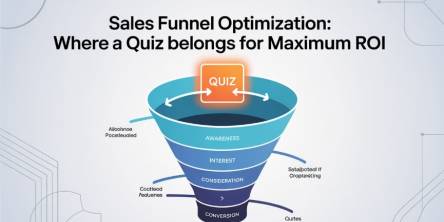Evaluating The Outsourcing of Help Desk Providers

Is outsourcing your company's IT help desk a possibility? Not only the technical aspect of providing IT support but also the entire package—people, procedures, and technology—where your business is handing over its IT support "life" to another party.
Even though help desk outsourcing has been a viable option for IT support sourcing for almost 20 years, it is a tested substitute for companies running their own internal IT help desk, with a few restrictions.
From the benefits of outsourced help desk costs to the potential negative impact on business operations, I examine the advantages and disadvantages of help desk outsourcing in this section.
People may have the misconception that outsourcing help desk services is only about cutting costs and improving financial results. It is also true that help desk outsourcing can be less expensive than "doing it yourself," primarily due to scale economies.
For instance, outsourcers can pay suppliers less because they are operating on a larger scale. For instance, IT help desk tool providers receive better deals. Or, if they provide the customer's IT hardware and third-party services in addition to providing IT support, there will probably be savings on these costs as well.
People will also save money as a result. First, the outsourced help desk provider's support staff may not only be available to your company; help desk agents typically handle multiple customers' issues and requests. Second, work will be off-shored whenever possible to economies with lower labor costs to reduce the outsourcer's labor costs, ideally without affecting service quality.
A fixed-price contract also lets the customer know how much IT support will cost each month, which is another cost-saving benefit. Well, almost, as there will undoubtedly be price variations to accommodate changes in volume, services, and service levels.
Help desk outsourcing has many other advantages in addition to the cost. These are some:
• Increased availability: Your internal help desk might not be able to sustain 24-hour operation. The IT help desk can continue to operate outside of regular business hours if you employ an outsourced help desk provider, however, because you can use pooled resources when demand is low.
• Using best-practice procedures: Help desk outsourcers must differentiate themselves not only in terms of cost but also in terms of quality to sell their services. Additionally, processes based on best practices should be optimized to reduce costs.
•Admittance to extra capacities - as well as supplanting the client's current assistance work area abilities, outsourcers likewise give the potential chance to acquire extra abilities that will additionally help the client's held IT association to satisfy its liabilities. This could be any number of IT support or ITSM-related activities that aren't being done right now. Management of problems or IT asset management, for instance
• Access to additional technical knowledge and skills: In a competitive market, some roles and technical skills may be difficult to recruit and retain or difficult to justify financially. An outsourced help desk provider has the scale to entice people with limited skills with higher pay rates, a variety of work opportunities, and opportunities to learn by "charging" their employees to various customer accounts.
• Service level agreements (SLAs): Outsourcing the help desk leads to corporately agreed-upon service levels that are measurable at the transactional level. For instance, the present internal help desk could work very hard to expedite provisioning and responses, but it's possible that different ticket categories don't have agreed-upon service level goals. Outsourcing includes these objectives as well as the monthly data that demonstrates how effectively the outsourcer is performing.
• Greater support across borders—if your business operates globally, you have two primary options for addressing language barriers:
1. require that all employees converse with IT support staff in the company language, possibly English, or
2. provide personnel who speak the local language to cover various regions. In addition, there is a third choice that encourages self-service so that technology can translate interactions. A shared-staff model may be used by an outsourced help desk provider to provide multilingual support at a lower cost, just like the availability benefit previously mentioned.
• Benchmarking abilities - a reevaluated help work area supplier is preferred situated over an in-house assist work area with estimating its presentation against industry norms and benchmarks. The metrics for the aforementioned outsourced help desk SLAs, such as first-contact resolution levels, Priority 1 resolution times, and average call-waiting times, will probably be based on industry standards.
• Technologies for the help desk: An outsourced help desk provider will invest in technology to reduce their overall operating costs to provide the best possible balance between quality and costs. This will include self-service capabilities, advanced telephony systems, monitoring and systems management tools, remote control, chat, and knowledge management, as well as a tried-and-true help desk tool. And with as much automation as possible, that saves labor. Additionally, the outsourced provider may already be making investments in chatbots, automated ticket classification, and other machine learning and AI technologies.
• Contracts that are more like “pay as you go”: Outsourced help desk contracts can come in a variety of flavors, ranging from a costly “all you can eat” model to a tiered-usage model that is actually “pay as you go.” Here, the outsourced help desk costs less if your business uses it less.
An outsourced help desk can provide numerous advantages. However, as with many aspects of life, there are also drawbacks to weigh against the benefits.
Begin with the benefits that are related to cost: First, the savings and costs that were agreed upon might not materialize. This happens frequently when certain business requirements were left out of the initial contract negotiations and have to be added later at a higher cost (and possibly with different margins).
Second, to maintain the levels of margin, the company providing an outsourced help desk must earn a specific margin on each transaction to support its overall profitability. Quality will likely suffer if the necessary margins are not met (in a "live" contract) and price renegotiation is not an option (with the customer). This might still be in line with the goals for the service level, but it will save money on unnecessary costs (usually for roles or services) and make the level of service "just good enough."
Thirdly, the customer may begin to pay more for this "just good enough" level of service than the outsourcing contract saved. Why? because a prolonged IT issue disruption will have a significant financial impact on employees and business operations.
Last but not least, in terms of expenses, a necessary measure that will make the provider of the outsourced help desk spend more money may cause them to delay taking corrective action.
For instance, in situations where they must wait for the customer's consent to bear the additional costs before moving forward.
In addition to the cost, there are several drawbacks associated with the externality of the outsourced help desk and the resulting organizational "disconnect" on multiple levels. For example,
• Help desk workers aren't aligned with the goals and culture of the customer organization. This could make it hard for the outsourced help desk workers to treat end users well and upset them.
• The help desk staff might only have a superficial understanding of the business operations of the customer organization. As a result, the context of IT issues and their impact might not be properly understood and dealt with.
• Outsourced help desk staff turnover may have an impact on service quality and customer knowledge. For instance, before moving on to a different customer account, employees might be trained on one. Personal relationships between customers and suppliers will also be impacted by this.
• Major-incident scenarios may feel "cold" or "removed" due to the possibility of a disconnect between customer personnel and the outsourced help desk. This dynamic is also distinct from the traditional "all hands to the pumps" approach when IT support is an in-house capability.
• From cultural differences to the ease with which help desk contact conversations flow, the location of the outsourced help desk may also present challenges for customer employees. that even though the same language may be spoken, the level of actual comprehension may not be sufficient.
• Several factors, including escalating costs and a decrease in quality and its impact on the business, could cause the relationship between customers and suppliers to become fraught. Instead of a partnership in which both parties are working in the same direction, there is now an adversarial situation in which both parties want to get the most out of their interactions. The situation will probably end in a lose-lose rather than a win-win situation as a result.
All of the aforementioned factors potentially add up to two additional disadvantages of outsourcing help desk tasks:
1. The sensation of losing control over the capabilities of IT support and the outcomes that follow.
2. A decline in customer satisfaction with IT support among end users.
Similar Articles
Times have changed and how! Take modern technology and the fast-paced digital economy, it is driving. Given the market conditions, any company's infrastructure has become more than just a technical detail.
It has been for everyone to see that the modern digital economy is distinguished by high volume, real-time financial transactions.
Business success has become reliant on efficiency and agility of the underlying technology infrastructure. Clearly, companies now depend on cloud computing to provide seamless services while managing exponential data growth.
Hospitals operate in environments where availability and patient safety are paramount at all times. As medical supply chains expand and regulatory oversight becomes more demanding, manual tracking methods introduce delays and risk.
Every sales funnel has one core goal: turn attention into revenue as efficiently as possible. Yet many funnels leak value at critical stages—visitors bounce, leads go cold, and sales teams chase prospects who were never a good fit.
Decentralized Finance (DeFi) has transformed how users earn passive income through blockchain-based financial systems. Among its most popular use cases,
Staying organized can feel like a full-time job. Between meetings, deadlines, and personal commitments, it’s easy to get overwhelmed.
Choosing the right GIS mapping software depends on what you need to accomplish. Some platforms cater to developers who want to build custom applications from scratch.
For data intensive industries such as insurance, the global business landscape is undergoing a profound transformation. Thanks to all the relentless technological innovation, this shift presents both significant challenges and unparalleled opportunities for modernization of the insurance sector.









